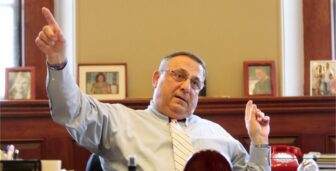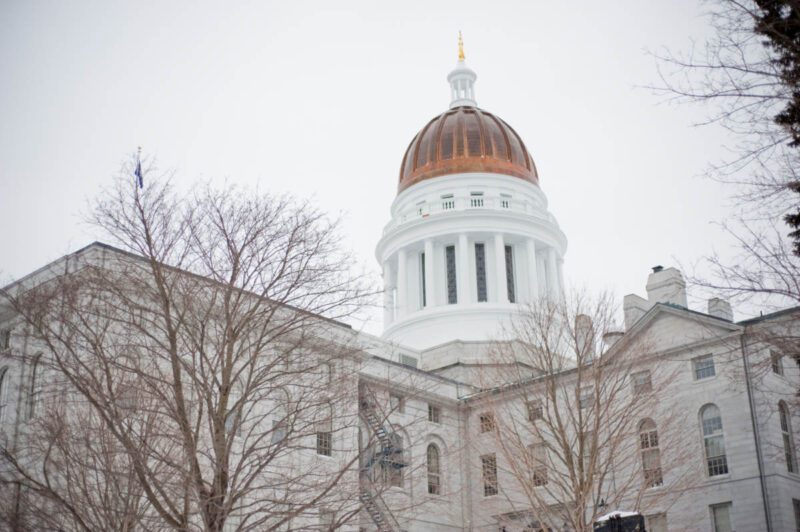A political action committee established and controlled by prominent Portland state Rep. Diane Russell, whose mission is to “help support Democrats in winning seats in the Maine House,” instead paid her almost 20 percent of its total expenditures for “online organizing” and spent less than four percent of its payments to support candidates.

Since 2013, Russell’s so-called “leadership PAC,” named the “Working Families PAC,” paid her a total of $7,747 of its total expenditures of $39,583. Most of the payments to Russell were in 2014. The PAC gave only $1,550 in contributions to Democratic candidates or organizations.
The rest of the PAC’s spending was on travel, food, fundraising, office expenses and a few other small categories.
When asked how her PAC’s spending fulfilled the mission of helping support Democrats in winning seats in the Maine House, Russell said, “Oh, is that the mission statement of the PAC? I haven’t changed it?”
Russell said the work the PAC paid her for was to drum up support for progressive causes and advocates both inside and outside of Maine. She said the PAC money paid her for time spent building that list.
“I have a pretty sizeable email list nationwide,” said Russell. “I use that often to help people battling progressive battles either locally or nationally.
“No one in the state has built what I have built, very few lawmakers in the country have built what I have built — it is a progressive power machine and I am more than happy to turn it on.”
Her PAC, she said, “allows me to expense the amount of time I spend doing that … working on issues I really care about.
“I took a little bit of payment for myself to make sure we had enough money to build this,” said Russell.
A “leadership PAC” is a political action committee run by a current member of the legislature or, in rare cases, a former legislator, who aspires to a leadership position. Other lawmakers have used the money in their leadership PACs in support of fellow party members’ electoral ambitions, either directly or indirectly, such as through events.
For example, in 2014, Assistant Majority Leader Rep. Sara Gideon of Freeport donated $15,275 from her leadership PAC’s total spending of $16,991 to Democratic candidates and the House Democratic Campaign Committee.
House Majority Leader Jeff McCabe’s PAC spent $30,650 out of total PAC spending of $48,487 in 2014 to support Democrats seeking the governorship as well as legislative and congressional office.
And House Minority Leader Ken Fredette, a Republican, used $26,625 out of his PAC’s total spending of $62,791 in 2014 to directly support Republican candidates and many thousands of dollars more to indirectly support them.
Neither Gideon, McCabe nor Fredette were paid by their PACs for any services.
Steven Biel, a Maine-based internet fundraising expert who has worked with the national progressive group MoveOn.org and others, called the Maine Center for Public Interest Reporting to offer a testimonial about Russell at her request. He said her list-building fit with the goal of her PAC.
Russell, he said, was “building the small donor base of the Democratic party while driving campaign messaging to advance the Maine Democratic party.”
Few Rules on PAC Spending
Leadership PAC money comes from contributions by supporters. In many cases, industries and businesses with a stake in legislation will donate money to leadership PACs, hoping to influence lawmakers. Russell’s PAC counts among its donors law firm Pierce Atwood, construction firm Reed and Reed and marijuana, real estate and beer and wine interests.

There are no rules against Russell, or any other legislator, using PAC money to pay themselves, according to Jonathan Wayne, executive director of the state’s Commission on Governmental Ethics and Elections Practices, known as the Ethics Commission.
“PACs have a great deal of discretion as to how they use their funds,” said Wayne.
Russell’s use of her PAC funds to pay herself illustrates the lack of rules for PAC spending.
“I was told that I can use the PAC money to help elevate causes, and that’s what I’ve been doing,” said Russell, who did not identify who told her that.
But Wayne said, “It’s very rare that we see PACs paying legislators for services.”
A review of PAC expenditures since 2013 by the Maine Center for Public Interest Reporting found no other legislators who used their PAC to pay themselves directly for work. Sen. Garrett Mason, R-Lisbon Falls, used his PAC to pay himself $1,092 in the category of “Campaign workers’ salaries and personnel costs,” but records show that was a reimbursement for payments to interns, not to himself.
Wayne said he could “only think of a couple of examples” of PACs paying legislators “off the top of my head.” Those examples include Russell and former state Sen. John Tuttle, D-Sanford, who lost his bid for re-election to the Maine Senate in 2014, after spending 28 years in the state legislature.
Tuttle’s loss came after the Maine Center for Public Interest Reporting revealed that he used his PAC, established to help other Democratic candidates run for office, to buy tires, pay for car repairs, reimburse himself for travel and pay his wife and daughter for computer services and keeping his books.
Of the $31,179 spent by Sen. John Tuttle’s political action committee since 2008, 55 percent — $17,251 — went to himself, family members and expenses related to them and 30 percent to help other Democratic candidates.
And in 2012, a reporter for the Current Newspapers wrote that then-state Sen. Cynthia Dill, D-Cape Elizabeth, had used her leadership PAC, the Dill Leadership Fund, to pay herself $4,000 to write a blog.
However, there is a way that legislators can earn a living by serving in the statehouse: They’re paid to be in the legislature. They make $24,686 for the two-year session they serve. They are also paid $38 per day either for housing or mileage and tolls. Lawmakers also receive $32 per day for meals.
Coffee Meetings and Travel
Russell’s PAC’s expenditures between 2013 and 2015 also include multiple payments to a coffee shop near her Munjoy Hill home for “coffee meeting(s).” The PAC paid $3,507 for food and $5,754 for travel costs, including charges associated with travel to conferences in places such as Las Vegas, San Francisco and Morocco.
When asked how having her PAC pay for expenses associated with those out-of-state trips advanced the PAC’s mission to “help support Democrats in winning seats in the Maine House,” Russell said it didn’t.
“Is it specific to the Maine House? No, but it has a lot to do with elevating the dialog and making sure I understand how to help women get elected,” she said.
Travel incidentals paid for by Russell’s PAC included charges such as $150 in cash for “for tips, taxis, food, etc. while in Morocco for Wand/East West Institute Conference. Charge cards were not often usable.” The Morocco travel and associated events were paid for by a non-profit women’s advocacy group.
Russell reported in state filings that the PAC also made three payments for a New York Times subscription, made 12 payments between July 2013 and Nov. 2014 to Virgin Mobile for “phone,” and spent $1,651.90 in June 2013 at the Apple Store at the Maine Mall for “equipment.”
Russell is a nationally known progressive who was named “Most Valuable State Representative” by the left-leaning Nation Magazine in 2011. She is also well-known for having sought to pass legislation legalizing marijuana in Maine. Those efforts were unsuccessful.
She is currently running in the Democratic primary for the Senate seat from Portland that is being vacated by state Sen. Justin Alfond.
According to the Ethics Commission, Russell also has a history of campaign finance violations related to her PAC and her participation in the public funding program known as Clean Elections:
• She was two months late in returning unspent Maine Clean Elections Act funds due in December 2014
• She did not file her PAC’s report due January 15, 2015 (PAC filed reports late, resulting in the PAC paying a penalty of $1,575)
• She did not file the PAC’s report due July 2015 (PAC filed reports late, resulting in the PAC paying a penalty of $556.80)
• Her PAC was fined $2,000 in Dec. 2015 by Maine ethics regulators for leaving some expenditures unreported for more than a year.
2015 PAC Reform Bill Vetoed
Wayne said the practice of a PAC paying its organizer for work and other seemingly personal purposes “can concern the public.” So after the Tuttle story appeared, the Ethics Commission sent a proposed bill to lawmakers in 2015 that would have banned PACs from paying any legislators who held leadership positions in the PAC.

The bill said that “if a Legislator is a principal officer or treasurer of a political action committee or is one of the individuals primarily responsible for raising contributions or making decisions for the political action committee, the committee may not compensate the Legislator or a member of the Legislator’s immediate family or household for services provided to the committee.”
The legislature passed the bill, but Republican Gov. Paul LePage vetoed it, and the legislature did not override his veto. LePage’s veto message said that the legislation provided “merely form-over-substance changes that do nothing to enhance or strengthen the [campaign finance] reporting laws.”
Although the bill had earlier been approved by the legislature with strong bipartisan support, the override vote followed party lines, with all but two Republicans, Sens. Roger Katz of Augusta and Tom Saviello of Wilton, voting to sustain the governor’s veto, and all Democrats voting to overturn it.




